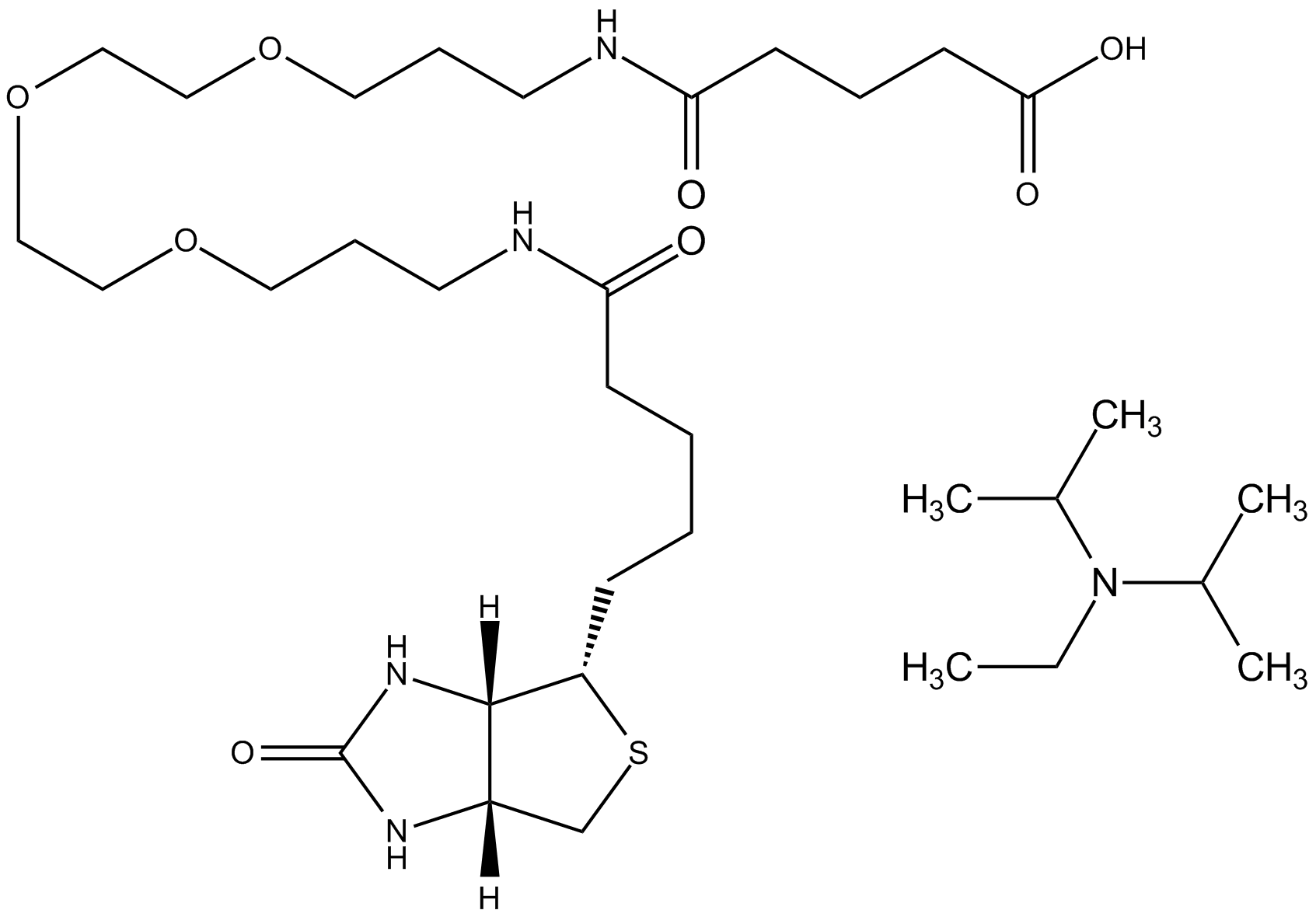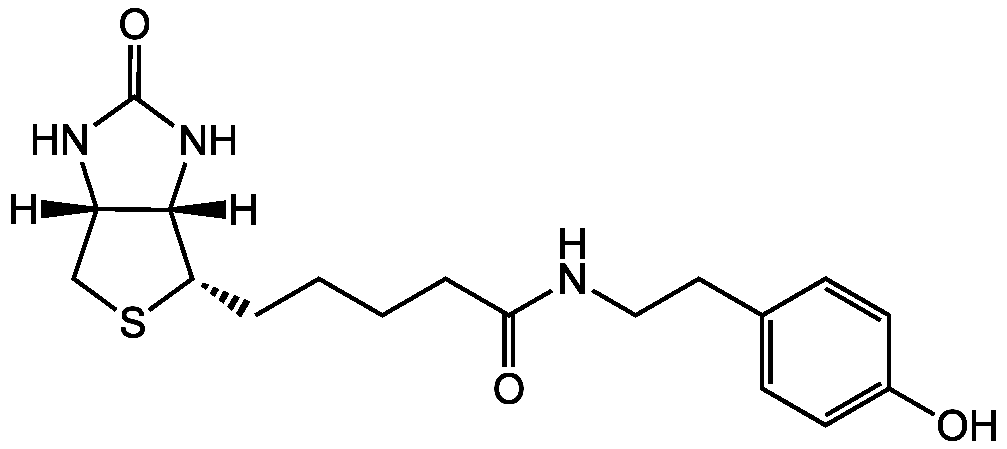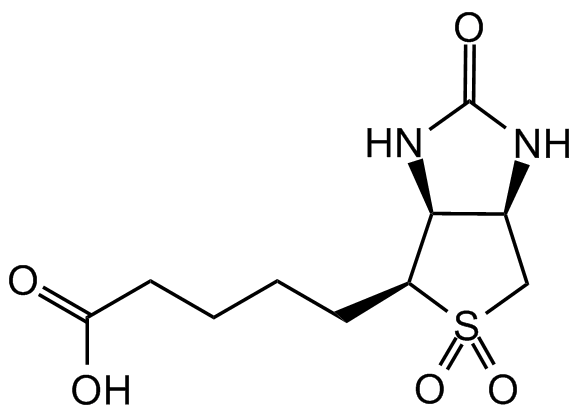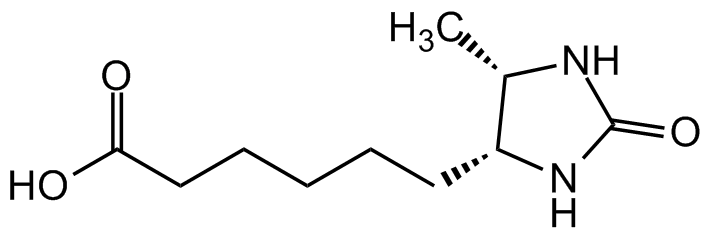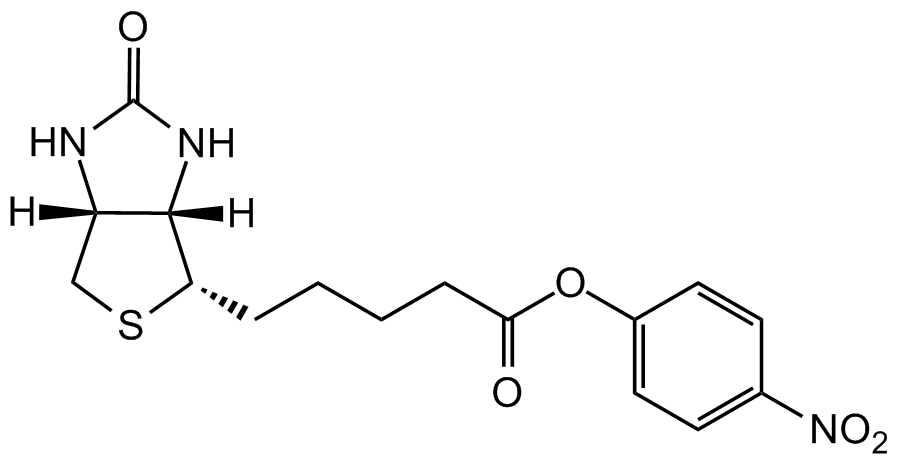
Chemical Structure
D-Biotin p-nitrophenyl ester [33755-53-2] [33755-53-2]
CDX-B0307
Product group Molecular Biology
Overview
- SupplierChemodex
- Product NameD-Biotin p-nitrophenyl ester [33755-53-2] [33755-53-2]
- Delivery Days Customer2
- CAS Number33755-53-2
- CertificationResearch Use Only
- Estimated Purity>98%
- Molecular FormulaC16H19N3O5S
- Molecular Weight365.4
- Scientific Description(+)-Biotin 4-nitrophenyl ester (Biotin-ONp) is a pre-activated biotin derivative, that is used as a biotinylation reagent in the modification of peptides, amino acids and proteins. Biotin-ONp is an effective and efficient tool for the introduction of biotin during solid phase synthesis, offering greater reactivity and higher solubility than Biotin-OSu. It may also be used to prepare biotinylated quinazoline derivatives. Recently, Biotin-ONp has been described as an alkyl chain-based PROTAC linker that can be used in the synthesis of PROTACs. PROTACs contain two different ligands connected by a linker; one is a ligand for an E3 ubiquitin ligase and the other is for the target protein. PROTACs exploit the intracellular ubiquitin-proteasome system to selectively degrade target proteins. - Chemical. CAS: 33755-53-2. Formula: C16H19N3O5S. MW: 365.40. (+)-Biotin 4-nitrophenyl ester (Biotin-ONp) is a pre-activated biotin derivative, that is used as a biotinylation reagent in the modification of peptides, amino acids and proteins. Biotin-ONp is an effective and efficient tool for the introduction of biotin during solid phase synthesis, offering greater reactivity and higher solubility than Biotin-OSu. It may also be used to prepare biotinylated quinazoline derivatives. Recently, Biotin-ONp has been described as an alkyl chain-based PROTAC linker that can be used in the synthesis of PROTACs. PROTACs contain two different ligands connected by a linker; one is a ligand for an E3 ubiquitin ligase and the other is for the target protein. PROTACs exploit the intracellular ubiquitin-proteasome system to selectively degrade target proteins.
- SMILESO=C(OC1=CC=C([N+]([O-])=O)C=C1)CCCC[C@@H]2SC[C@@]3([H])[C@]2([H])NC(N3)=O
- Storage Instruction-20°C,2°C to 8°C
- UNSPSC41115800





